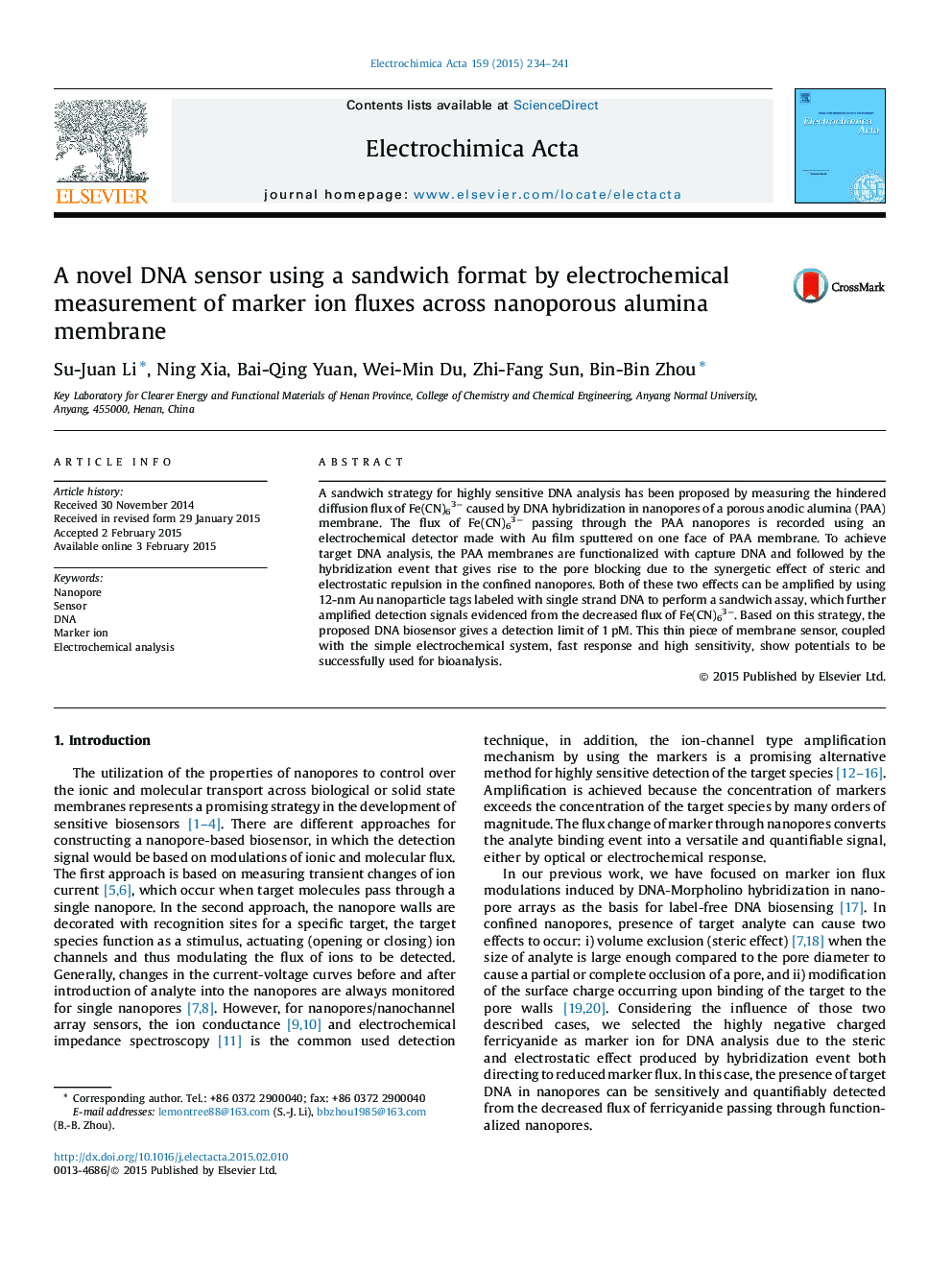| Article ID | Journal | Published Year | Pages | File Type |
|---|---|---|---|---|
| 6612149 | Electrochimica Acta | 2015 | 8 Pages |
Abstract
A sandwich strategy for highly sensitive DNA analysis has been proposed by measuring the hindered diffusion flux of Fe(CN)63â caused by DNA hybridization in nanopores of a porous anodic alumina (PAA) membrane. The flux of Fe(CN)63â passing through the PAA nanopores is recorded using an electrochemical detector made with Au film sputtered on one face of PAA membrane. To achieve target DNA analysis, the PAA membranes are functionalized with capture DNA and followed by the hybridization event that gives rise to the pore blocking due to the synergetic effect of steric and electrostatic repulsion in the confined nanopores. Both of these two effects can be amplified by using 12-nm Au nanoparticle tags labeled with single strand DNA to perform a sandwich assay, which further amplified detection signals evidenced from the decreased flux of Fe(CN)63â. Based on this strategy, the proposed DNA biosensor gives a detection limit of 1Â pM. This thin piece of membrane sensor, coupled with the simple electrochemical system, fast response and high sensitivity, show potentials to be successfully used for bioanalysis.
Related Topics
Physical Sciences and Engineering
Chemical Engineering
Chemical Engineering (General)
Authors
Su-Juan Li, Ning Xia, Bai-Qing Yuan, Wei-Min Du, Zhi-Fang Sun, Bin-Bin Zhou,
